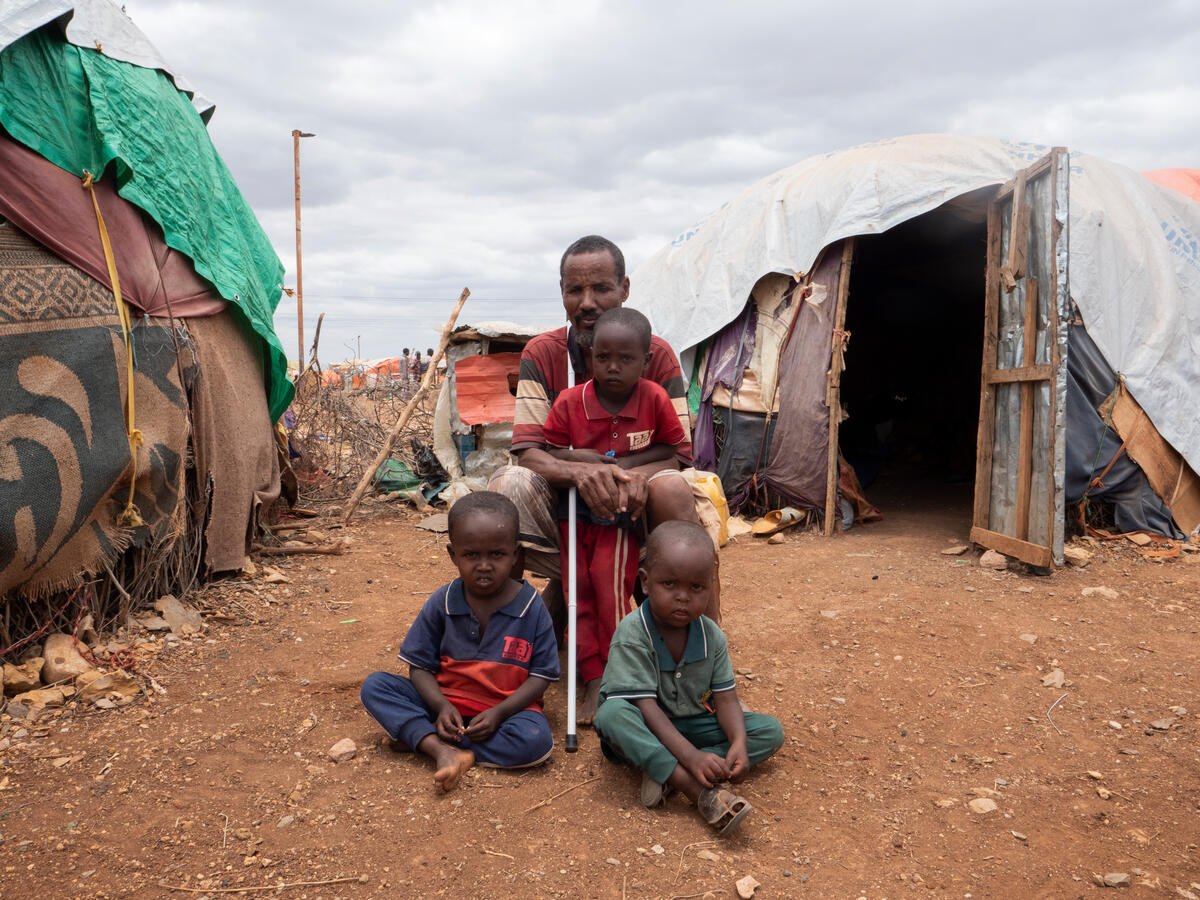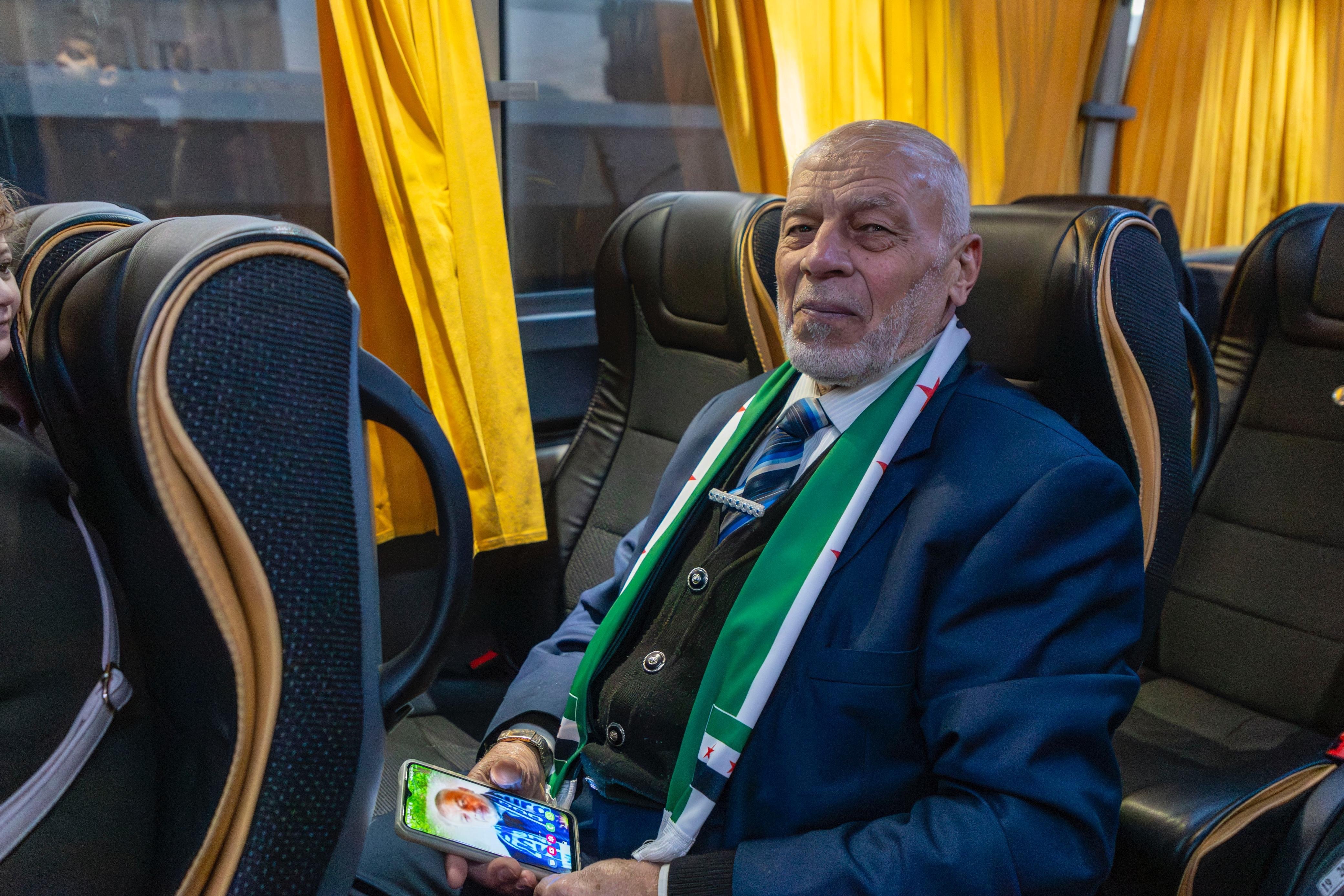Burning trash to keep warm in Syria town cut off by war
Burning trash to keep warm in Syria town cut off by war

QUDSAYA, Syria – Keeping a 100-square-metre apartment with bare concrete walls and a dirt floor warm during a harsh Syrian winter is tough for 70-year-old Aisha.
She lives in an unfinished building converted into a shelter for internally displaced people in hard-to-reach Qudsaya, a mountain town a few kilometres from Damascus that has been largely cut off by war.
“I burn plastic and cardboard in order to get some warmth during the winter,” says the grandmother, who fled her home in rural Damascus five years ago with her two daughters and three grandchildren, after fighting erupted.
She is among millions of people uprooted by wars in Syria and neighbouring Iraq who fret about how their families will get through the winter months as temperatures fall across the region.
At nearly 800 metres above sea level, those living in unfinished buildings and exposed shelters in Qudsaya are most at risk from harsh winter conditions. Most rainfall comes in the winter, and temperatures often drop below zero.
“We barely survive here” as it is, says Aisha, standing in an unfurnished room with the smell of damp hanging in the air. “We don’t even have warm clothes in this harsh weather.”
“We barely survive here. We don’t even have warm clothes in this harsh weather.”
Since July 2015, restrictions have meant residents could not move freely, while commercial supplies and humanitarian assistance can only be delivered with prior coordination. The restrictions were recently eased following a local agreement between the warring parties.
For many, it has meant a return to something at least resembling a normal life. But behind the now bustling streets and busy markets of Qudsaya, the stark realities of the war remain. For 54-year-old Nabeel, life is still far from normal.
When clashes erupted in the town three years ago, the father of three fled his house and returned to find it torched and looted. “We left home in a hurry, without taking a single item with us, we returned to find everything trashed,” he says.
Since then, his life has become more difficult. He lost his job in Damascus when restrictions were placed on movement to and from Qudsaya. His family were further hit by rising prices for food and household items in the local market.
“In three years, I’ve received humanitarian aid a couple of times. That’s not enough. It is like a drop in the ocean,” says Nabeel, who now survives by scavenging.
UNHCR, the UN Refugee Agency, has begun delivering life-saving assistance to 4.6 million displaced Iraqis and Syrians – like Aisha, Nabeel and their families – to help them survive the harsh winter conditions.
“In a situation like ours, anything can help us survive.”
In coming weeks, UNHCR aims to reach 3.2 million Syrians and 1.4 million Iraqis, who have been uprooted within their countries’ borders or have sought refuge in Turkey, Jordan, Lebanon and Egypt. The aid includes a mixture of cash payments, clothing, blankets, heating fuel and other basics.
In recent weeks, UNHCR delivered plastic sheets, thermal blankets and winter clothes to the besieged city of East Harasta in the eastern Ghouta district of rural Damascus. The delivery was part of a UN convoy which carried food and medicine for the 11,000 people trapped in the city.
Then in recent days, the UNHCR aid drive reached Qudsaya and the nearby village of Al-Hama, where staff delivered enough winter clothing kits for 30,000 residents, as part of an inter-agency convoy that also delivered badly-needed food and medicines. Aid, the first to reach Qudsaya as winter draws in, was welcomed by residents.
“God only knows what we went through since we arrived here,” Aisha told UNHCR. “In a situation like ours, anything can help us survive.”
UNHCR’s Winter Assistance Plan remains US$68 million underfunded. You can help those in need here.








